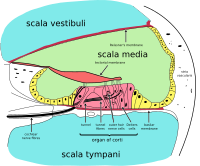
APOL1 Risk Variants, Acute Kidney Injury, and Death in Participants With African Ancestry Hospitalized With COVID-19 From the Million Veteran Program.
Sign Up to like & getrecommendations! Published in 2022 at "JAMA internal medicine"
DOI: 10.1001/jamainternmed.2021.8538
Abstract: Importance Coronavirus disease 2019 (COVID-19) confers significant risk of acute kidney injury (AKI). Patients with COVID-19 with AKI have high mortality rates. Objective Individuals with African ancestry with 2 copies of apolipoprotein L1 (APOL1) variants… read more here.
Keywords: risk; ancestry; risk group; risk variants ... See more keywords

Risk Variants in the Exomes of Children With Critical Illness
Sign Up to like & getrecommendations! Published in 2022 at "JAMA Network Open"
DOI: 10.1001/jamanetworkopen.2022.39122
Abstract: Key Points Question Do the exomes of critically ill children without a genetic diagnosis carry risk factors? Findings This genetic association study of 267 children with critical illness and 18 deceased children found a statistically… read more here.
Keywords: children critical; risk variants; loss function; critical illness ... See more keywords

From Basic Science to Clinical Application of Polygenic Risk Scores: A Primer.
Sign Up to like & getrecommendations! Published in 2020 at "JAMA psychiatry"
DOI: 10.1001/jamapsychiatry.2020.3049
Abstract: Importance Polygenic risk scores (PRS) are predictors of the genetic susceptibilities of individuals to diseases. All individuals have DNA risk variants for all common diseases, but genetic susceptibility differences between people reflect the cumulative burden… read more here.
Keywords: medicine; risk; prs; risk variants ... See more keywords

Identification of novel high-impact recessively inherited type 2 diabetes risk variants in the Greenlandic population
Sign Up to like & getrecommendations! Published in 2018 at "Diabetologia"
DOI: 10.1007/s00125-018-4659-2
Abstract: Aims/hypothesisIn a recent study using a standard additive genetic model, we identified a TBC1D4 loss-of-function variant with a large recessive impact on risk of type 2 diabetes in Greenlanders. The aim of the current study… read more here.
Keywords: type; type diabetes; risk variants; genetic model ... See more keywords

APOL1 Risk Variants and Subclinical Cardiovascular Disease in Incident Hemodialysis Patients
Sign Up to like & getrecommendations! Published in 2021 at "Kidney International Reports"
DOI: 10.1016/j.ekir.2020.11.006
Abstract: Introduction To better understand the impact of APOL1 risk variants in end-stage renal disease (ESRD) we evaluated associations of APOL1 risk variants with subclinical cardiovascular disease (CVD) and mortality among African Americans initiating hemodialysis and… read more here.
Keywords: hemodialysis; risk; disease; apol1 risk ... See more keywords

APOL1 Renal Risk Variants and Sickle Cell Trait Associations With Reduced Kidney Function in a Large Congolese Population-Based Study
Sign Up to like & getrecommendations! Published in 2022 at "Kidney International Reports"
DOI: 10.1016/j.ekir.2021.09.018
Abstract: Introduction APOL1, GSTM1 risk variants, and sickle cell trait (SCT) are associated with chronic kidney disease (CKD) among African Americans (AAs). Nevertheless, such evidence remains scarce in sub-Saharan Africa (SSA) populations. Methods In a cross-sectional… read more here.
Keywords: risk; study; risk variants; sct ... See more keywords

Open Chromatin Profiling Identifies Functional Noncoding Risk Variants In Human Ipsc Model of Psychiatric Disorders
Sign Up to like & getrecommendations! Published in 2019 at "European Neuropsychopharmacology"
DOI: 10.1016/j.euroneuro.2017.06.122
Abstract: Abstract Most disease variants lie within poorly-annotated noncoding parts of the genome, and their functional interpretation is challenging. To functionally assess the relevance of noncoding sequences in neuropsychiatric disorders, we hypothesized that disease-relevant noncoding sequences… read more here.
Keywords: risk; noncoding; open chromatin; human ipsc ... See more keywords

A global evolutionary and metabolic analysis of human obesity gene risk variants.
Sign Up to like & getrecommendations! Published in 2017 at "Gene"
DOI: 10.1016/j.gene.2017.07.002
Abstract: It is generally accepted that the selection of gene variants during human evolution optimized energy metabolism that now interacts with our obesogenic environment to increase the prevalence of obesity. The purpose of this study was… read more here.
Keywords: obesity; risk variants; obesity gene; gene risk ... See more keywords

Identifying genetic risk variants associated with noise-induced hearing loss based on a novel strategy for evaluating individual susceptibility
Sign Up to like & getrecommendations! Published in 2021 at "Hearing Research"
DOI: 10.1016/j.heares.2021.108281
Abstract: BACKGROUND The overall genetic profile for noise-induced hearing loss (NIHL) remains elusive. Herein we proposed a novel machine learning (ML) based strategy to evaluate individual susceptibility to NIHL and identify the underlying genetic risk variants… read more here.
Keywords: risk; individual susceptibility; nihl; hearing ... See more keywords

APOL1 risk variants in individuals of African genetic ancestry drive endothelial cell defects that exacerbate sepsis.
Sign Up to like & getrecommendations! Published in 2021 at "Immunity"
DOI: 10.1016/j.immuni.2021.10.004
Abstract: The incidence and severity of sepsis is higher among individuals of African versus European ancestry. We found that genetic risk variants (RVs) in the trypanolytic factor apolipoprotein L1 (APOL1), present only in individuals of African… read more here.
Keywords: sepsis; individuals african; ancestry; apol1 ... See more keywords

Genetic risk, lifestyle, and AMD in Europe. The EYE-RISK consortium.
Sign Up to like & getrecommendations! Published in 2020 at "Ophthalmology"
DOI: 10.1016/j.ophtha.2020.11.024
Abstract: PURPOSE Age-related macular degeneration(AMD) is a common multifactorial disease in elderly with a prominent genetic basis. Many risk variants have been identified, but the interpretation is still challenging. We investigated the genetic distribution of AMD-associated… read more here.
Keywords: consortium; risk; lifestyle; late amd ... See more keywords